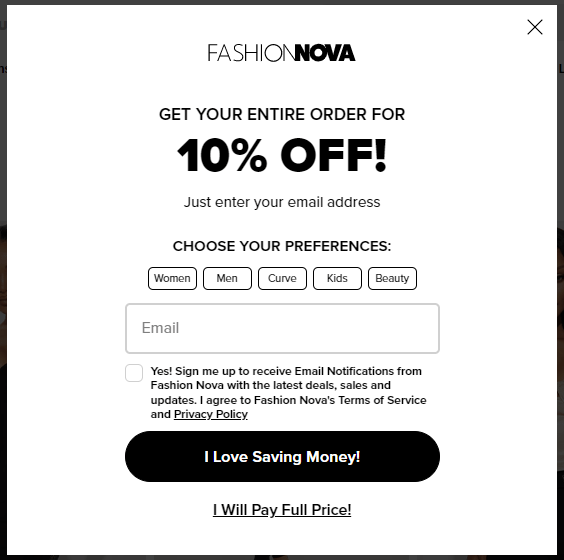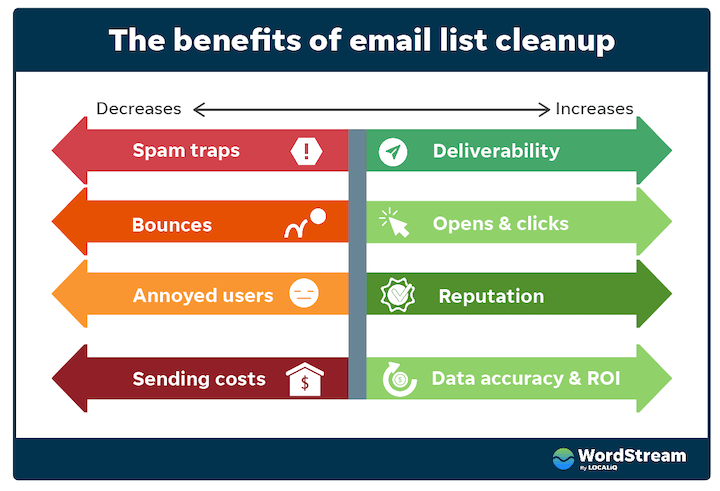Best News For Picking A Family Medicine Email list
Wiki Article
What Are The Important Things I Should Consider Before Purchasing An Email List Of Hematologists?
It is important to take into consideration a variety of aspects when buying a hematologist mailing list to make sure that the list you purchase is correct, in compliance with the law and applicable to the marketing objectives. Here are some key considerations. Quality of data and accuracy
Source of Data - Confirm whether the email list provider has reliable sources. These include professional directories and medical databases. Hematologists may be opted in to receive emails if they've confirmed their consent. The quality of a list is determined by how accurately the contacts were obtained.
Verification of updates and data Ask about the data verification process employed by your service provider. Validate email addresses to remove inactive or incorrect addresses. Regular updates are essential to ensure that the list is current, as healthcare professionals can change jobs or even institutions.
Segmentation and specialization: Make sure the list is only for Hematologists. It can also be divided into locations and degree of experience as well as hospital affiliation and subspecialty. A well-organized list will help you make your outreach more effective.
2. Legal Regulations
Data Privacy Laws : Ensure your list is compliant with all relevant data privacy laws like the California Consumer Privacy Act, General Data Protection Regulation, in Europe or the General Data Protection Regulation, in the U.S. That means email addresses will only be obtained after consent has been given.
CANSPAM Act – in the U.S.a ensure whether your email lists are in compliance with CANSPAM Act. It governs commercial electronic communications. Your emails may also be branded as spam if you don't adhere to.
Consent to Opt In: The list should include only doctors who have an explicit opt-in to receive emails from third-party companies. Unsolicited emails sent to individuals without their consent could lead to low engagement as well as legal issues.
3. Provider Reputation
Find out about the reputation and history of the service. Reviews, testimonials, and case studies can help you figure out whether the firm has a good reputation. A well-established company with a solid reputation is more likely to provide accurate, high-quality data.
Transparency - Choose a data provider who is transparent in terms of the source of the data and how it was collected. Beware of companies that are not clear or specific about their data collection method.
Customer Service: A good service provider will provide top customer service. A strong support system is essential in case you have any questions or require assistance with technical issues, compliance issues or list customization.
4. Cost and return on investment (ROI).
Pricing Models: Consider the pricing options available and consider whether they are pay-percontact, flat rate, or subscription. Make sure that the cost matches the ROI. This means you have to balance your marketing budget and the quality of your list.
Refund or replacement policy A reliable service provider will offer refunds or replacements to customers with invalid or out-of-date email addresses. Clarify all conditions and terms of the policy prior to making any purchase.
Value for Money Comparison of options like segmentation choices and data accuracy warranties together with the price. The list with the lowest cost might not always be the most useful in the event that its data quality falls short.
5. Ownership of Data and Usage
Multiple Use: Be aware of the rules of use applicable to the email list. Understanding the rules of use is crucial. Some providers only allow the use of the list for one specific campaign whereas others provide unlimited usage rights.
Exclusive vs. Shared Lists: Decide whether your email list is exclusive or shared. Exclusive lists usually have higher engagement rates because the list members are less likely to receive email marketing from different sources.
6. Data Integration and Format
The list of items is compatible with CRM or email tools: Make sure that the list can easily be integrated into your CRM systems or email marketing platforms. The list should be accessible in standard formats such as CSV or Excel to ensure seamless integration.
Simple of Use: Examine how easy it is to manage and filter your list. Lists that are hard to segment or work with may reduce the efficiency of your marketing campaigns.
7. Ethical Considerations
Relevance: You should ensure that the content you send to hematologists is relevant. If you send content to hematologists that does not align with their expertise could cause poor engagement and will affect your reputation as a brand.
Avoiding Spam Tips: Take care not to overwhelm recipients with too many emails. If you send too many emails, it can result in complaints about spam and damage your reputation as a sender.
The final sentence of the article is:
Buying a hematologist email list is a great instrument for targeted marketing but it requires careful consideration. Concentrate on the quality of the data, conformity with privacy laws and the reputation of the provider to ensure that you receive an accurate, reliable and efficient list. The importance of segmentation, as well as legal compliance and ethical advertising can allow you to maximize your return on investment and maintain your brand's reputation. Read the pro hematologists email list for blog tips.

What Are The Important Things I Need To Think About Before Buying A Urgent Care Email List?
If you're looking to purchase an email urgent care list, make sure to take into consideration a number of elements. It is important to determine if the list is accurate legal, efficient and effective and also pertinent to your business's goals. Here are the key considerations:1. Accuracy of data and Quality
The source of data - Ensure that the data collected by the provider originates from trustworthy sources, like medical associations or databases for healthcare. Avoid lists created using scraping or other unreliable methods since they could have outdated or incorrect data.
Verification Process: Confirm that the address list has been updated and verified regularly. A reliable provider follows a rigorous verification procedure to get rid of invalid, outdated duplicate and invalid email addresses. This will guarantee high delivery and lower bounce rates.
Segmentation and Targeting The list should include different options for segmentation, including location (city or region, state or city) and the size of the urgent care facility as well as the types of services offered (e.g. diagnostics, pediatrics) and the decisions-making roles (e.g. doctors, practice owners, etc.). The targeted lists will increase the value of your outreach and boost engagement rates.
2. Compliance with Legal Regulations
Data Privacy Laws - Ensure the list conforms to applicable laws regarding data privacy, such as the General Data Protection Regulation in Europe and the California Consumer Privacy Act in the U.S.A. That means that emails must be collected and processed in a legal manner with the permission of all parties who are involved.
CAN SPAM Act: In the U.S.A., all marketing emails are subject to the CAN SPAM Act. It is essential to include your email address along with an explicit "opt-out" method. Non-compliance with the law can cause penalties or damage to your brand.
Opt-in Consent: Make sure that all email addresses in the list were acquired by explicit consent. This means recipients have signed up to receive marketing emails. This minimizes the risk of legal concerns.
3. Provider Reputation
A reputable provider: Select a provider with a proven track record of delivering top-quality, compliant email lists. Look through the testimonials, case studies and customer reviews to assess the provider's customer satisfaction.
Transparency - The provider must be open about the source of data and when it was changed. If the company isn't able to be able to provide clear explanations of their methods of collecting data this could indicate low-quality data.
Customer Support: A solid customer support team is crucial if you require assistance with technical problems, list customization or compliance. A customer-friendly service is able to help you get the most value from your list.
4. Return on investment (ROI) and cost
Pricing Models: Email list service providers generally have different pricing models including pay-per-contact and flat charges. Take into account the price model and the budget for marketing. Check the cost and quality of the list with relevant information.
Policy on Refunds or Replacements Most reliable suppliers offer the option of a refund or replacement if an important portion of email addresses is invalid or undeliverable. Make sure you understand the policy before buying.
Value for money: Instead of choosing the cheapest option choose lists that provide value with accurate data and detailed segmentation. Investing into a list of top quality will boost engagement and yield a higher ROI.
5. Data Ownership, Usage, and use
Single-Use or Multi-Use? Clarify if you can use this list for one campaign, or multiple times. Lists that permit multiple uses are more valuable. This is particularly true in the event that you intend to conduct ongoing campaigns.
Shared Lists vs. Exclusive lists: Determine if the list is exclusive to your company or shared with buyers from other companies. Shared Lists: Determine the list's exclusivity for your business or shared with other buyers. Shared lists may result in list fatigue as the recipients might receive marketing communications from several companies, reducing the rate of engagement.
6. Data Integration and Format
Compatibility with CRM: Check whether the email list you send out is delivered in an email format compatible with either your Customer Relationship Manager (CRM), or email platform. It could be CSV or Excel. This will allow for a seamless integration, and allow you to begin your campaign in a short time.
User-friendly: Email lists should be easy-to-manage and segment according to certain criteria. A well-organized list can make targeting and personalization more effective.
7. Ethical considerations
Relevance and value of content Content's value and relevance: Urgent care providers are busy professionals, so the content you send out should be helpful and pertinent. Your messages should be customized to their specific needs. This may include medical equipment, technology for healthcare, or supplies that are specifically designed for urgent care operations. Sending inappropriate content can hurt the image of your company and diminish engagement.
Stay clear of Spam by being mindful of the frequency at which you send emails. Sending excessive emails or unwelcome messages could result in complaints of spam, and could damage your reputation.
Conclusion
Make sure you are aware of the accuracy of your data as well as the legal compliance, and the credibility of the company you choose to purchase an email list for urgent assistance. The list should be separated. It must also be kept up-to-date and in line with the laws regarding data privacy. By delivering targeted information and investing in a reliable, high-quality mailing list, you can increase engagement and get a good ROI for your investment. Have a look at the recommended urgent care email list for blog examples.
